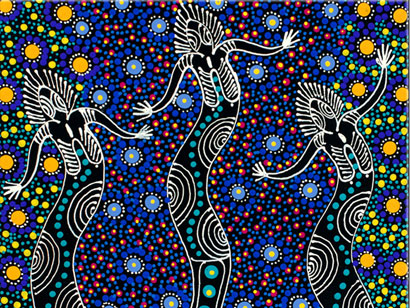Upon finishing my reading of Henderson the Rain King I discovered several mythological themes throughout the book. Henderson, trying desperately to go back to his own Illo Tempore and his relation to being a hero on an adventure.
Within the first part of the book Henderson describes being in an age of madness. He no longer enjoys his life and is not in touch with reality. "There is a curse on this land. There is something bad going on. Something is wrong" (Bellow 38). Convinced that he must go on a journey and find what it is that is plaguing him so. I would compare this to trying to go on an adventure to become a hero. He is trying to exercise his own creative powers in his own beginning to fix what his life has become. Africa is the answer to him.
I found Henderson to be in "Dream Time" throughout the entire book. He feels he has a job to do. During the first chapter he is in Africa he states, “and I felt I was entering the past--the real past... The prehuman past" (Bellow 46). He then states his connection between nature and himself, becoming his own supernatural being.
Upon reaching the first tribe Henderson immediately notices the connection between the cattle and their owners. Cattle are mythological beings in themselves. He allows the thought of the cattle being relatives to those who own them. Henderson is so overwhelmed with what he has discovered he is sure he has left the real world stating, "And I'm still not convinced that I didn't penetrate beyond geography" (Bellow 55). Beginning his journey to recreate what his own supernatural being did, going back to his own "sacred time."
The start of Henderson's own recreation is discovering the frogs that have poisoned the water supply. This was his task, he was sure of it. Saving these people was his journey's purpose. Discovering at this point Henderson is extremely strong; he proves this by wrestling Itelo. He defines himself as a hero at this point, or so he thinks.
Henderson is deeply crushed when his plan to kill the frogs backfires and he ends up leaving the tribe in even worse condition then when he arrived. I could not help but compare his actions to Hercules and Achelous. Henderson takes on a role as Hercules with characteristics of a hero. I believe cutting off the water supply completely compare to ripping off Achelous' horn leaving the land sterile. Later, he brings much rain to Dahfu's tribe which represents the Horn of Plenty.
The next stop on Henderson's journey brings him to Dahfu. Again, reacting on impulse and wanting so much to be a hero he moves Mummah. He again sees a chance to go back to the beginning and make things right in his world. What Henderson seems to not understand is that the world cannot be changed, only relived.
"This may be interpreted as a promise that in time we would be delivered from blindness and understand. On the other hand, it may also mean that with time we will understand our own enormities and crimes, and that sounds to me like a threat" (Bellow 162). Henderson goes on the quest to try and fix something that he wants, but he is fighting what will show him the truth. Dahfu tries to show him how to embrace the truth of the world. Henderson is a becomer but wants to be a be-er but is trying so hard to fight the reliving of times and to not be another person but something more. "I mean that depth where I have always belonged" (Bellow 193)
Dahfu teaches Henderson many things while he is staying with the tribe. You can tell Henderson accepts many new things that he didn't before through Dahfu's intelligence. "the flesh influencing the mind, the mind influencing the flesh, back again to the mind, back once more to the flesh" (Bellow 236). Henderson is beginning to understand that life is a continuing circle that cannot change, however he still believes it can.
Upon meeting Atti, Henderson goes back to resistance of reality. Dahfu is trying to teach Henderson that life involves becoming something more than what you are. He tries to get Henderson to embrace the Lion, to become like the lion. In order to be, you must become. Henderson never really grasps on to the concept resulting in his fear of change.
After Dahfu's death Henderson is given the chance to start a new life. One as the king and hero he always wanted, the purpose of his journey. However, he realizes that he wants to go back to where he started. His supernatural journey ends up taking him back to the beginning, just like the rest of us. On the brighter side, his journey resulted in a manifestation of something new, strong, and significant which means he did go back to a "sacred time." He relived what he needed which created the hero in himself. Henderson finally accepts that the beginning is the end, “Ages of longing and willing, willing and longing, and how have they ended? In a draw, dust and dust” (Bellow 285).


No comments:
Post a Comment